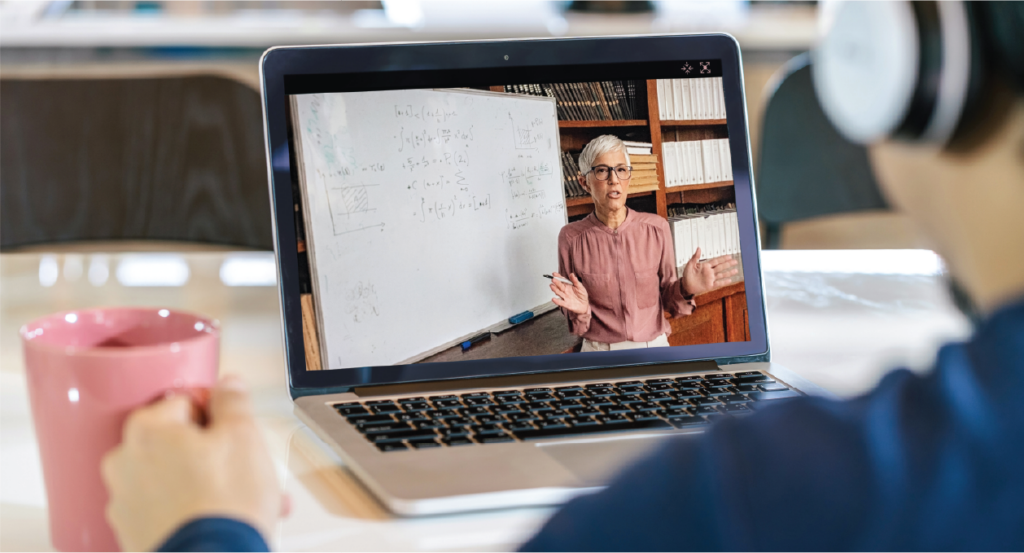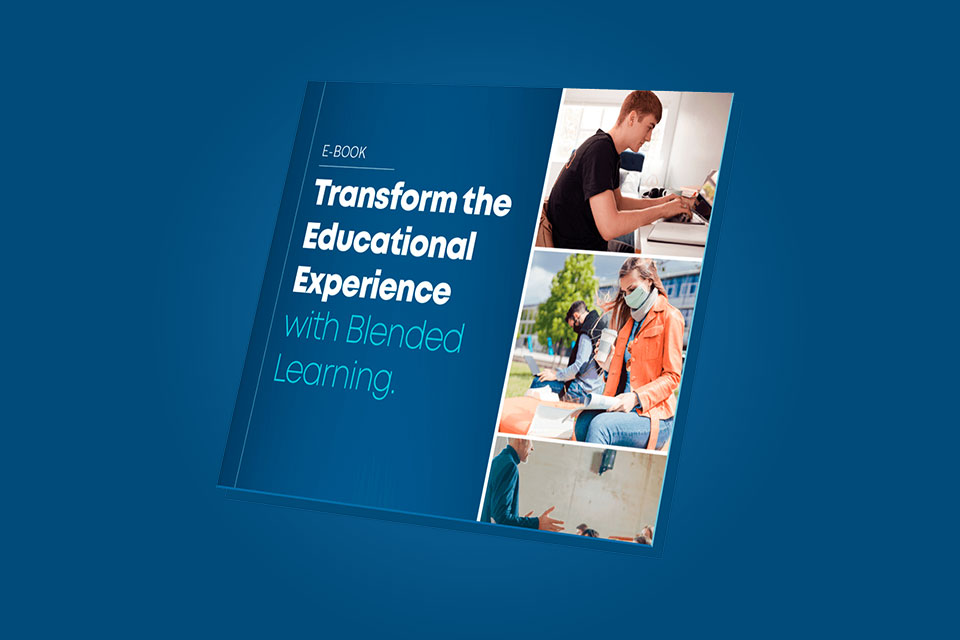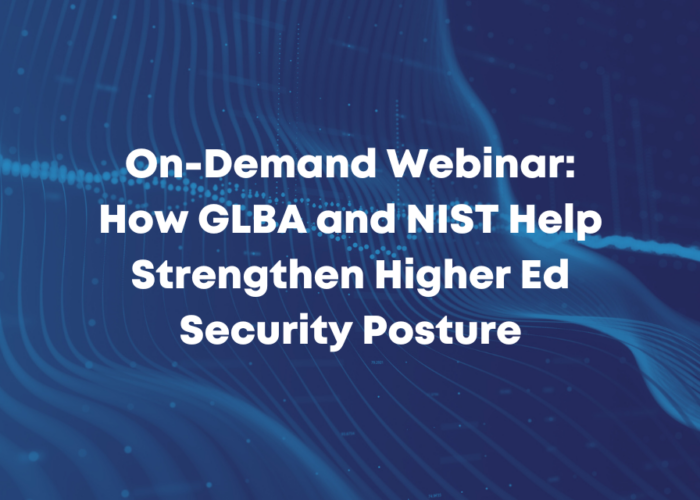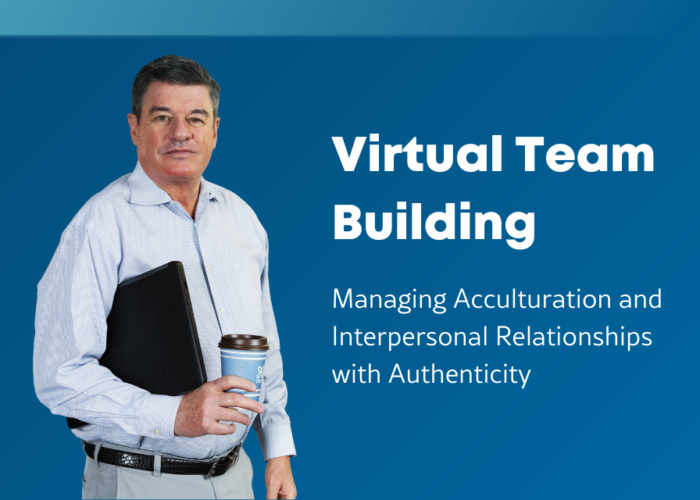How traditional and remote learning modalities can work together to reshape the educational experience for the future
For years, traditional, synchronous, and asynchronous learning modalities have been conceived of in discrete buckets. The concept of remote learning has been plodding along as just a cool idea or convenient add-on for schools with the time and resources to think about it. It’s been far from a critical need. Until now.
Smart thinkers and innovators in higher education have begun to explore how remote learning might be applied to amplify and even revolutionize the on-campus learning experience and how blending synchronous and asynchronous modalities with traditional, in-classroom learning might dramatically improve the way students and faculty interact and collaborate with each other. For small to mid-size colleges and universities looking to attract, retain, and graduate the modern student and compete for students with larger land-grant institutions, blended learning is the key.
Today, in the midst of a public health crisis and social unrest, our new reality won’t tolerate any complacency. Ready or not, colleges and universities all over the country are finding out how good (or bad) they are at deploying synchronous and asynchronous learning. In just a few short weeks, remote learning has fallen from its perch of optional convenience and landed with a thud as an absolute necessity. The time to act is now.
In this e-book, we’ll take a closer look at the way synchronous, asynchronous and traditional learning modalities can work together to enable a better educational experience. Not just as a way to navigate the current public health crisis, but as a way to come out swinging on the other side. And, we’ll discuss the vital role your IT organization will play in bringing about this transformation, with almost overnight transition from simple cost center to critical contributor in the fight for enrollment, retention, persistence, and outcomes.
A brief history of remote learning

The concept of MOOCs — massively open online courseware — has been around for two decades. Begun as an outcropping of the open educational resources movement, which held that class size had no deterministic effect on outcomes, MOOCs were thought to be an effective way to extend high-value educational content to far greater numbers via the internet. Around the same time, MIT posited that the inherent value of coursework had less to do with its content and was instead about with whom the coursework is completed. MIT OpenCourseWare was born in 2001.
But MOOCs never took off as envisioned. As a completely asynchronous experience, with pre-recorded professor-driven lessons accessible by millions on demand, businesses and employers viewed MOOCs as a fairly low-value alternative to traditional learning.
Some forward momentum was achieved, though, as online program management (OPM) companies began to emerge. Firms like 2U and Academic Partnerships work directly with colleges and universities to bring their academic programs online. This in turn has led to fairly expansive OPM offerings that include things like recruitment and enrollment services and course design and content delivery platforms, to the greater benefit of higher education.
Traditional learning exists at the opposite end of the learning modalities continuum. For literally hundreds of years, educators and students have tested and proven its effectiveness. Taken in the context of what we’ve learned about MOOCs, the residential and co-curricular student experience is as valuable, if not more so, than coursework content itself. The lesson?
Stop thinking about replacing the traditional model and instead think about how you can use online modalities to make it even better.

The accelerating need for a new approach
Today’s public health crisis, and the conditions that will follow for months if not years to come, put immediate pressure on colleges and universities to implement remote learning. The demand is already growing, not just for solutions to equal the traditional learning model but for innovative solutions that can improve upon it.
WE GET IT — THIS IS HARD.
A review of recent progress bears it out. While many schools have moved thousands of classes online almost overnight, measuring the success of those classes is severely limited. Very few schools have access to the sort of metrics that could suggest a meaningful outcome, such as data for student attendance, much less participation or engagement.
The vast majority of faculty not versed in online teaching are struggling to build coursework in a way consistent with the needs of synchronous learning. The harsh reality here is that while Zoom and Canvas may be functioning as advertised, successfully moving online is a bar too low for which to settle.
The opportunity for businesses and problem solvers is to develop a synchronous learning platform designed not to replace traditional learning but to complement it and make it better. The opportunity for you as a leader on your campus and as an innovator in higher education is to make blended learning – the combination of traditional, asynchronous and synchronous learning modalities – a focal point of your educational vision and strategy.
Rethink the role of online learning

When we continue to think about synchronous learning as an alternative to the traditional model, we miss the chance to leap forward rather than crawl. And while on the surface it may be counterintuitive to stream course content to a student sitting right in front of you, synchronous learning for students physically in attendance offers incredible flexibility and autonomy.
In this new environment, students can interact with a lecture – pause, rewind, play again – to focus on
important areas of the content that may require additional time. Or they might replay material that slipped by them as they grappled with other aspects of the lesson. The private sector offers this type of learning environment today for employees. Moreover, new synchronous technology platforms could measure sentiment in real-time, analyzing student engagement and response to indicate where the class may have been lost or need further review. Students, in-person or remote, can interact with professors in real time advising them to slow down or to give examples. Professors can use that information to follow up with more detail or drive longer-term improvements in content and delivery.
Occasionally, life happens. A student may need to leave the classroom early. Another may not be able to attend at all on a given day as sports or other outside commitments conflict. Asynchronous playback of the day’s lecture in a residence hall or other location allows that student to pick up where he or she left off or to capture the lesson in its entirety before returning to class next time. No back-and-forth email between professor and student. No chasing down fellow students for notes or help. Imagine the efficiency gains here.
Inspire a new style of collaboration

Over the last fifteen years, the focus of on-campus residence halls has been on community building. Living and learning-oriented communities have been launched at a majority of universities nationwide. For smaller schools, these communities exist in floors of residence halls. Some larger schools may have entire neighborhoods dedicated to an area of academic interest or lifestyle. Sports, LGBTQ, or science-themed areas are but a few examples.
In the new normal, social distancing protocols could inspire the creation of study pods, in which groups of students with similar interests or learning styles could group together to stream coursework simultaneously and discuss. To manage the health and safety of its student population, schools might select random student “bubbles” to be in the classroom (or out of it) on a given schedule, effectively managing the occupancy of a given classroom or lecture hall in accordance with social distancing.
These micro cohorts or pods born of necessity could have an interesting and positive impact on collaboration, or they could create opportunities for students who might have otherwise never interacted to work together and learn from each other.
With this kind of impact, what feels like a near-term inconvenience – randomly assigned days to attend class in person – could quickly morph into a preferred method of collaborating and learning for all students involved.
Blend modalities to compete and win
Some large and state-funded schools are already finding value in synchronous and asynchronous learning as they expand their curriculum beyond its regional presence. A leading state-funded school in the southwest may do popup online schools in other cities during the first four days of the week, with lab work performed at a physical site on Friday. This model allows the school to leverage local professors, who may perform similar duties for multiple schools, in a sort of shared-services model that helps the school optimize its investment.
The opportunity for small, private or hyperlocal colleges and universities is even bigger. Consider the following example. A regional college partners with a local employer. Leveraging both asynchronous and synchronous learning on top of its established traditional model, the school is able to limit the number of students physically in the classroom on a given day while using its synchronous platform to deliver an education experience far more personalized than any larger school could provide. In this instance, blended learning provides an educational experience unlike any ever enabled before.
Emory and Henry
Apogee customer Emory and Henry in Virginia is already putting these concepts to use. Through partnership with a local health sciences center, Emory and Henry created a sort of internship plus model, making it easier for working healthcare professionals to receive more education and training without leaving their current jobs. Under the model, a full-time nurse can pursue additional study or training to enhance his or her career, possibly becoming a specialized nurse with higher pay (e.g., anesthesia) or achieving other career goals. The school’s interactive curriculum allows working professionals to participate between shifts and, as the school sits just a few miles down the road, attend in person when their schedule permits. Enrollment at Emory and Henry has since skyrocketed as a result.
Where previous iterations of online coursework have been focused on expanding reach globally, in this case, the real innovation comes from focusing the same practices locally – delivering a high quality, high value educational experience where students already are. Internship plus offers flexibility to students who otherwise might not have the opportunity to pursue additional education. And it provides the schools themselves a terrific model to transition to fast and easily in times of disruption.
The evolving, high stakes role of IT

As blended learning begins to take shape all around us, the role of IT will make a hard shift from just a cost center to a vital contributor in the fight for student enrollment, retention, persistence and outcomes. For you and your peers, this means relying on your own business savvy more than you ever have before.
Think strategically and ask the right questions. What are the services we need to outsource to help us effectively accomplish our goals? What technologies will we need to adopt to deliver a better educational experience? As new industries emerge focused on the learning continuum extremes of traditional or asynchronous, an internship plus model may be the difference between winning and losing. What technology or process changes will be required to enable it?
While the technology underpinnings of asynchronous learning are simpler to manage, synchronous learning is intricately linked to the performance of your Wi-Fi network. Imagine a student enjoying an incredible experience from your synchronous learning platform and its content, only to see it fall apart the first time your Wi-Fi cuts out during a live stream. Unlike asynchronous learning, in which a temporary connectivity drop could be tolerated, a lost connection during a live streamed lecture is a death knell. Reliable, highly available connectivity is core to delivering a new and improved academic experience – more important than any technology platform designed to deliver it.

Trust your campus network to Apogee.
Higher education is in for a ride. For you, bringing students back to campus and retaining them absolutely demands you deliver an entirely new educational experience. The current health crisis only adds to the expectations of incoming freshman, who’ve spent their entire academic careers performing online coursework. They expect the next-level version of it from you.

In the near term, and perhaps long after, returning students are likely to stream content from their residence halls more than ever before. It’s not difficult to imagine a future in which live streaming of coursework from 200 feet away is the norm. How will you need to adapt to support them? Do you need a per-classroom dedicated engineer to ensure Wi-Fi is working properly and issues are immediately addressed? Will you need to stand up a 24/7/365 network monitoring structure and help desk team to manage the innovative technologies and teaching applications that sit on top of your network? These are just a couple of considerations.
This sort of fast, hard shift in focus is all but impossible to manage with a small in-house IT staff and historically flat budgets meant to satisfy unpredictable technology updates and challenges.
The right managed services model can make all the difference. Built-in equipment refreshes and a predictable funding model, one that grows with the needs of your network, are critical. As new synchronous and asynchronous technology platforms emerge and improve, the modernization of your network will decide your fate. It’s impossible to envision a future in which a ten or even five-year-old network infrastructure will get the job done.
Take a closer look at your existing ability to scale, ensure reliable performance or your network, and predict your budgetary requirements in this new environment. Outsourcing helps manage your uptime, availability, and support so you can stay focused on the specific modalities and delivery mechanisms that will be critical to your student user experience. As these concepts and technologies aren’t yet fully refined, it’s important for your time and energy to be focused there. You have no time to waste.
Choose a partner you can trust.
At Apogee, higher education is all we do. Our two decades of focused expertise spans a robust suite of services, from fast, non-disruptive installs to around-the-clock NOC management and support. With more than 400 higher ed customers served and the resulting big data insights to learn from, Apogee ensures a fully modernized network ready for the future of learning.




